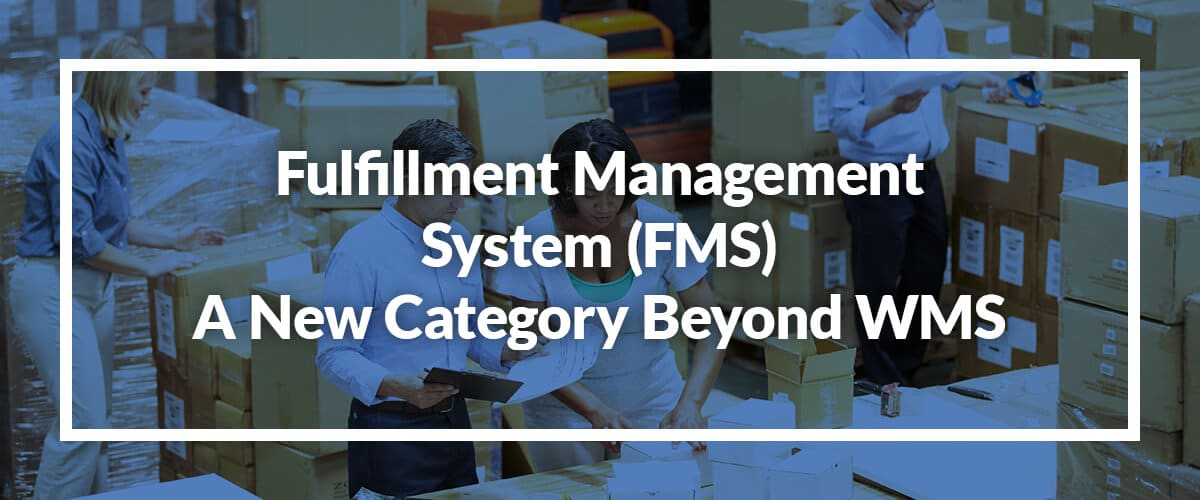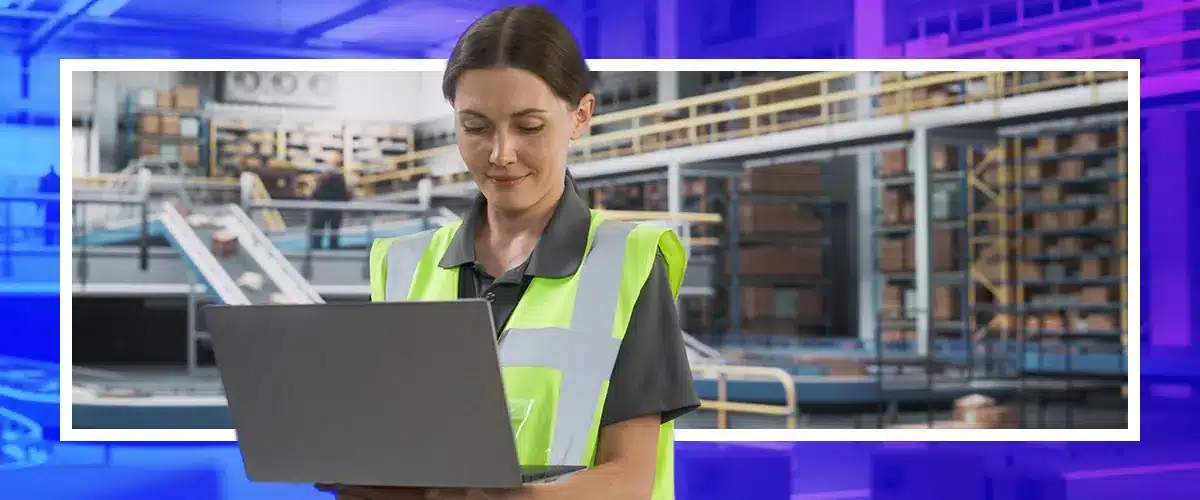Ecommerce logistics is entering an exciting new era with Fulfillment Management Systems (FMS). These systems are more than an upgrade over traditional Warehouse Management Systems (WMS). They represent a paradigm shift for supply chain management and fulfillment operations.
Logiwa leads the way with our Cloud-native FMS. In this blog, we will discuss this revolutionary new category of software and its benefits for high-volume fulfillment.
Contents
Key Takeaways
- WMS focus on inventory management and optimizing storage in a warehouse. Fulfillment Management Systems focus on increasing fast, accurate order processing.
- FMS use advanced automation and integrates systems to ensure quicker delivery of customer orders.
- FMS adapt more effectively than WMS to changing consumer behaviors and market trends.
- Logiwa’s Cloud-native FMS incorporates headless architecture, AI-powered automation, intuitive UX/UI to ensure time-to-value.
Fulfillment Management Systems (FMS)
Fulfillment Management Systems represent a new category of solution in the digital era. These solutions go beyond warehouse management software. They work to unify and streamline fulfillment processes.
- Warehouse Management Systems manage inventory and storage. They support static warehouse environments.
- Fulfillment Management Systems focus on shipping products as fast as possible. They address the challenges of fulfillment centers and direct-to-consumer (DTC) operations.
FMS take on a larger scope of the order fulfillment process. It handles your logistics process to simplify the process of getting products from the warehouse to customers.
The Need for Fulfillment Management Systems in Modern Ecommerce Logistics
Customers expect fast, accurate deliveries without exception. Fulfillment Management Systems provide a solution that responds to changing market conditions:
- Consumer Demands: FMS systems handle changing order volumes and shopping trends. They ensure you can effectively adapt to evolving buyer needs.
- Industry Strategies: FMS makes it easy to embrace new business models, fulfillment strategies, and technology.
- Customer Expectations: FMS helps you safeguard customer satisfaction by improving efficiency and enabling faster, more accurate order processing.
- Peak Seasons: FMS solutions support seamless scaling during your busy periods without sacrificing customer satisfaction.
In the fast-paced world of ecommerce, Fulfillment Management Systems provide a one-stop solution. They reduce labor-intensive tasks, minimizes errors, and optimizes operations, resulting in significant time and cost savings.
Why FMS Should Replace Your Traditional WMS
From managing orders and inventory to picking, packing, and shipping – FMS streamline high-volume operations. They offer future-forward features that Warehouse Management Systems (WMS) cannot match.
Headless Architecture
Top FMS solutions embrace headless infrastructure. This means you can tailor your solution to fit specific requirements and workflows. It ensures you can make custom add-ons, tools and branding part of your system.
Watch the video above to see the benefits of Logiwa IO’s innovative headless architecture.
Flexible Integrations
FMS seamlessly integrates with ecommerce, shipping, and accounting platforms. With a tool like Logiwa’s Orchestrator, you can even make custom connections. This ensures real-time syncing of inventory and order operations across all relevant channels.
Advanced Automation
FMS combine smart automation, AI, and robotics to reduce manual operations. Logiwa uses AI-powered job creation to optimize picking routes, reduce errors, and speed up the order fulfillment.
Intuitive User Experience
FMS ensure ease of use for fast time-to-value. For example, Logiwa’s UX/UI makes it easy for new employees to learn and use our system. It helps enhance labor efficiency and address the needs of high industry turnover.
Real-time Data and Analytics
FMS give you access to real-time data across your entire business. This empowers you to forecast demand, optimize inventory levels, and make informed decisions that improve your operations.
Unlock a personalized tour of Logiwa IO
How FMS Address the Core Challenges of Fulfillment Centers
Fulfillment Management Systems represent the future of ecommerce logistics. They help you navigate the ever-changing landscape of consumer demands in several key ways:
The Ability to Scale
Unlike traditional WMS solutions, Cloud-native FMS are dynamic. They can adapt quickly to the needs of high-volume fulfillment centers. FMS are flexible and scale up or down with changing business needs, including seasonal changes. This is key in an era where consumer demands and market trends shift rapidly.
Unified, Comprehensive Management
A Fulfillment Management System offers a unified platform that encompasses every aspect of fulfillment:
- Fast, Accurate Order Processing: FMS systems rapidly process accurate orders. This prevents delays, which directly impact customer support and satisfaction.
- Cost-effective Inventory Management: FMS help you maintain optimal inventory levels, reducing the risk of overstock and stockouts.
- High-Efficiency Fulfillment: FMS automate and optimize tasks like picking and packing to enhance labor efficiency and fulfillment results. This also improves the returns process.
- Streamlined Shipping Logistics: By integrating with shipping carriers and using rate shopping tools, FMS support cost-effective shipping.
AI for Complex Problem-Solving
AI-powered Fulfillment Management Systems represent a huge leap for modern fulfillment centers. AI can solve complex problems and ensure efficient operations.
AI can analyze order information, inventory locations, and other data to create jobs and efficient picking routes. With the help of AI, FMS learn to make real-time inventory changes as new orders come in. This keeps picking and packing processes optimized.
Logiwa’s FMS: Designed for Future-Proof, Competitive Growth
With the right Fulfillment Management System, you can achieve sustainable, long-term growth. Logiwa’s platform ensures you stay ahead of shifting demand and inventory levels, while enhancing fulfillment processes.
Dive into the world of efficient, responsive, and adaptable fulfillment solutions with Logiwa’s AI-powered solution. See how our Cloud-native Fulfillment Management System (FMS) can unlock the potential of your operations. Request a demo today.
FAQs Related to Fulfillment Management Systems (FMS)
What is a Fulfillment Management System in ecommerce?
A Fulfillment Management System streamlines the entire process of fulfilling online orders. It handles a range of tasks. This includes receiving orders, managing inventory, and picking and packing orders, as well as shipping orders and handling returns.
What makes Fulfillment Management Systems better than traditional WMS in handling ecommerce orders?
They are more efficient than WMS. They use real-time integrations to ecommerce and shipping platforms to streamline order processes. They also use advanced automation and adapt fulfillment processes to changing order activity.
Do Fulfillment Management Systems integrate with my online store and other business systems?
Yes, FMS can seamlessly integrate with various business systems, including ecommerce platforms, shipping, accounting, and robotics systems.
How do Fulfillment Management Systems reduce expenses related to fulfillment operations and shipping cost?
By optimizing stock levels, automating fulfillment tasks, and streamlining shipping logistics, FMS reduces costs by reducing manual labor, errors, and inefficient fulfillment operations.
Can FMS adapt to different sizes of ecommerce businesses?
Absolutely. A FMS is scalable to support businesses of all sizes. This includes startups, small businesses, and enterprise-level operations.
To access more insights on Fulfillment Management Systems (FMS) visit Logiwa.
Fulfill Brilliantly with Logiwa: Meeting Modern Fulfillment Challenges Head-On.
Warehouse Management
Modern digital WMS powers a modern fulfillment experience






